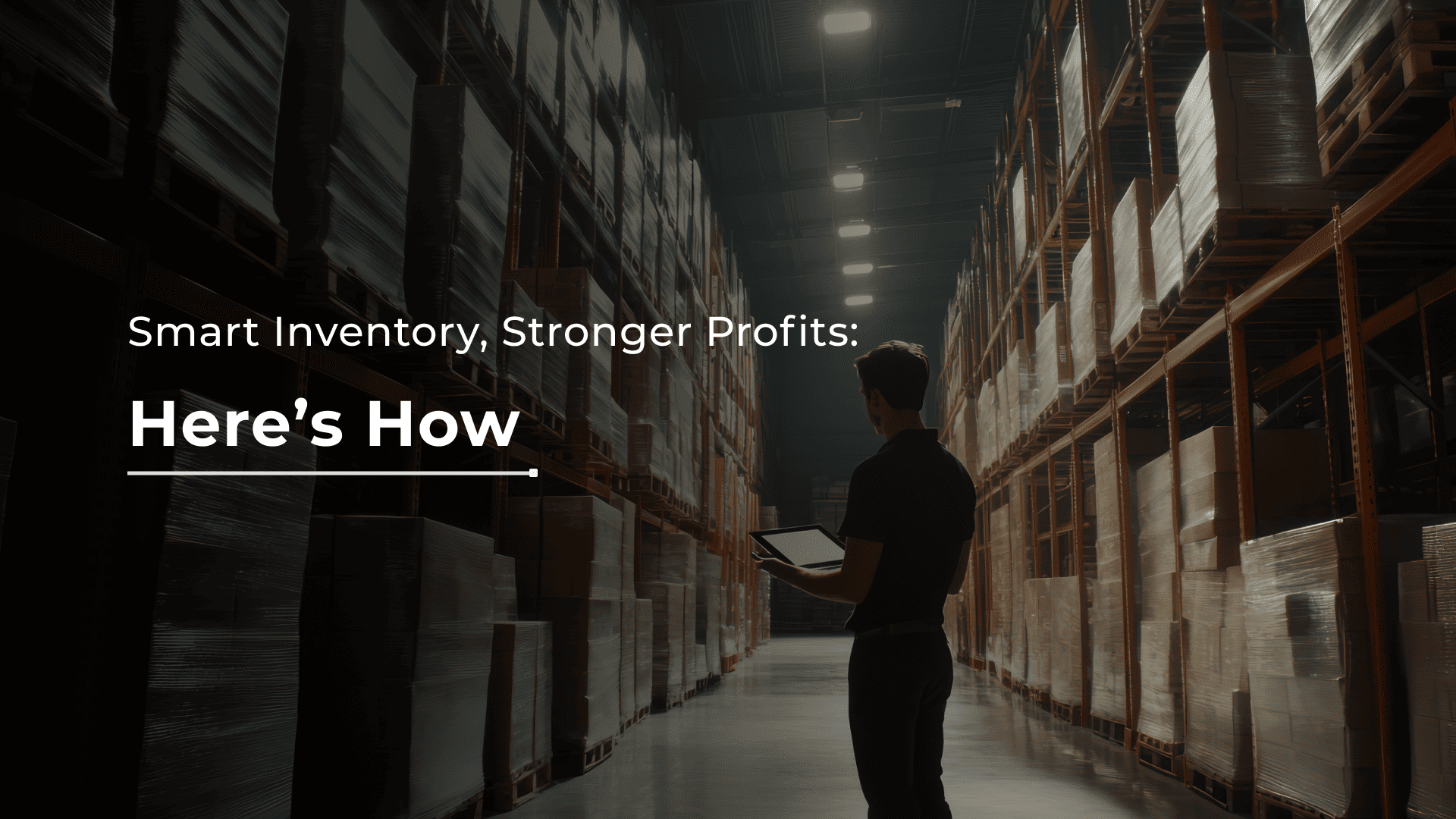Hey! Lets Talk about your project
We’ll contact you within a couple of hours to schedule a meeting to discuss your goals.
Managing Complex Logistics: The Role of Multi Warehouse Management Software in Streamlining Operations
Posted on : 10 December, 2024
In today’s economy, keeping up with growth and expansion is a true task that has to be completed for sustenance. Especially with the increased exposure to multiple regions, businesses are required to face the challenges that come with it. With escalated customer demands, companies are even more forced to manage operations extra professionally. The failures in meeting the requirements may lead to increased operational costs and further delays.
Here comes the role of Multi-Warehouse Management Software (MWMS). There are a string of benefits linked to the implementation of an efficient Warehouse Management Software which includes improving order fulfilment, optimizing inventory management, and streamlining warehouse operations. In this blog, we will take a dive into the significance of multi-warehouse management software in simplifying complex logistics operations and helping entities maintain efficiency.
Understanding the Role of Multi-Warehouse Management Software
Businesses turn to warehouse management software to optimize and manage warehouse operations, including order fulfilment and data management. The system is packed with applicable smart strategies that can be easily followed to stay ahead in the market.
The system often takes a holistic approach to managing inventories making it reliable. Small business owners often neglect this part, whereas, in reality, effective warehouse management is crucial for every business regardless of its size. A WMS system should be incorporated into a business as long as the business is looking to gain a competitive edge in the market.
To kick things off, it’s the inventory management where the primary focus of WMS logistics falls. With proper inventory management overstocking and stockouts can be avoided. Additionally, it also helps in improving customer satisfaction by speeding up order fulfilment.
Another immediate benefit of effective inventory management is that it directly impacts the company’s foundation by cutting down costs associated with buying and storing excess inventory. Modern warehouse management software also enables warehouse managers to make better decisions for the company. WMS often follows a futuristic approach, ensuring the sustenance of the company.
Ensuring space management is one of the other key aspects of WMS logistics. When it comes to effective warehouse management, space utilization optimization cannot go unmentioned as it is essential for ensuring operational efficiency. The warehouse storage space is indeed a valuable asset. Based on the demand, size, and weight of each product, the placement has to be organized accordingly to avoid unnecessary shifting and storage of unwanted items. Taking care of its space can also reduce handling costs to a great extent, taking productivity to the next level.
Last but not least, WMS is highly significant in boosting shipping efficiency. With a WMS system running in the back end, streamlining the shipping processes becomes a walk in the park as the system automates tasks as such along with label printing and documentation, saving plentiful time.
Key Benefits of Multi-Warehouse Management Software
Businesses managing multiple distribution centres need to depend on or consider multi-warehouse management software as they offer a string of benefits, and here are some of the key benefits of using such tools:
Maximized Inventory Management
An effective warehouse management software enables businesses to keep an eye on the stocks, ensuring they maintain optimal stock levels. The system also supports automated replenishment features which ensures products are restocked as needed eliminating the risk of stocks running out. The multi-warehouse management software also simplifies the process of transferring stocks between warehouses, reducing time wastage and ensuring order fulfilment.
Scalability and Flexibility
With the expansion of businesses, warehouse managers are bound to face numerous challenges- handling increased orders being one of them. WMS offers scalability, allowing the multiple distribution centres of companies to integrate. This projects the flexibility of an entity and ensures the company can easily adapt to future challenges falling in the brackets of accommodating new products, adding new locations, and, increasing order.
Integration with Other Business Systems
One of the key features of modern warehouse management software is its seamless integration with other company software. Apart from WMS, businesses often use software like Transportation Management Systems (TMS) and Customer Relationship Management (CRM) to ensure a more holistic approach to business operations.
Better Resource Management
With MWMS, businesses can identify underused resources allowing managers to optimise warehouse management. This insight is particularly useful for maximising storage capacity and optimizing staffing levels, enhancing overall productivity.
Improved Visibility and Reporting
Multi-warehouse software allows inventory managers to watch over inventories throughout multiple locations. This eliminates overstocks and stockouts.
Enhanced Customer Experience
By tracking the inventory in multiple locations, multi-warehouse software ensures that orders are fulfilled from the appropriate warehouse, reducing time and improving order accuracy. Together it leads to better customer experience.
Challenges of Traditional Warehouses
While traditional warehouses have been benefiting businesses for many years, they come with numerous limitations that can directly impact the performance of the company. Here are some key challenges faced by businesses following traditional warehouses:
Inefficient Space Utilization
Traditional warehouses are designed in such a way that they may not utilize the storage space efficiently. Some of the major reasons behind this are poorly organized warehouse layouts and static shelving.
Manual Processes
Still, many traditional warehouses rely on manual methods for the completion of tasks like order picking, shipping, and inventory tracking, leading to human errors and delays in order fulfilment.
Inventory Inaccuracies
Lack of real-time tracking can lead to overstocking and stockouts resulting in issues like delayed shipments and failures in order fulfillment. All these can adversely affect the customer relationship.
Lack of Integration
Typically, traditional warehouses operate in isolation which means, they operate separately with no relation to other software of the business such as demand forecasting and transportation management systems.
Slow Order Fulfillment
Without automation, traditional warehouses may lag in processing orders. The delay in finding items and preparing them for shipment can increase the duration of order fulfilment causing poor customer satisfaction.
Conclusion
Simply put, the warehouse management system is a comprehensive approach to various processes that can together optimize inventory management and streamline order processing, enhancing the overall performance of the business and customer satisfaction. With the increased competitiveness of the business, it becomes crucial for companies to incorporate appropriate warehouse management software. Indeed, it’s one of the most sought-after methods to take the business to the next level, especially in the wake of increased competition. It is important to note that choosing the right software can make a huge impact.
Contact us for the best multi-warehouse management software. Get in touch with us if you are willing to level up your business game. Schedule a free consultation today and discuss your requirements with our experts.


































 Talk to our Expert
Talk to our Expert
